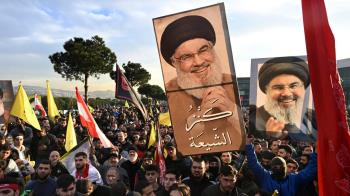According to a report from Al Jazeera News, due to heightened tensions in the Red Sea and ships avoiding the passage through this sea and the Suez Canal, the quantity of oil shipments from the Middle East to Europe has been dramatically decreased.
Based on the most recent statistical findings by the Kpler Institute, the quantity of crude oil transported from the Middle East to Europe has undergone a 50% reduction in the past few months. The volume has declined from 1.07 million barrels per day in October 2023 to 570,000 barrels per day in December 2023.
Analysts at the Kpler Institute posit that the heightened tensions in the Red Sea, negatively impacting the flow of ship traffic through this route—a disruption noted as the most significant since the onset of the COVID-19 pandemic—coupled with other factors like heightened demand from China for crude oil, has compelled Middle Eastern oil-exporting nations to redirect their oil tankers away from the Red Sea and the Suez Canal. This rerouting has been necessary to meet the increased demand, resulting in a more substantial reduction in the supply of crude oil to European markets than observed previously.
Recent airstrikes by the United States and the United Kingdom on targets in Yemen have significantly unsettled the situation in the Red Sea. Some of the largest global shipping companies have halted transit in this region, compelling their vessels to take an alternative route around the African continent and the Cape of Good Hope to reach European destinations. This longer route has resulted in heightened supplementary expenses such as increased fuel costs, crew wages, higher insurance rates, ultimately leading to a surge in freight charges.
Viktor Katona, a senior analyst specializing in crude oil at the Kpler Institute, underscored the importance of oil tankers navigating through the Suez Canal. He noted that these tankers had gained strategic significance both with the onset of the conflict in Ukraine and due to sanctions imposed on Russia. Katona pointed out, "Sanctions against Russia amplified Europe's reliance on Middle Eastern oil. However, given the current conditions in the Red Sea, Europe's access to this energy source is now uncertain and precarious."
In solidarity with the Palestinians in Gaza and their commendable resistance, the Yemeni forces have obstructed the movement of ships and vessels affiliated with the Zionist regime, heading for the ports of this regime via the Red Sea. This action has dealt severe economic setbacks to the structure of the Zionist regime's economy.



























